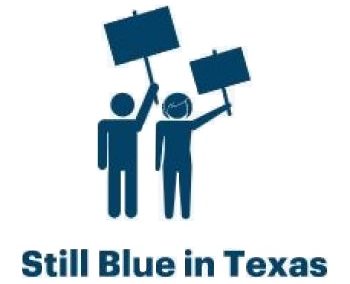HB 1937 by Jessica González will bring in over $1 billion in new tax revenue and reduce criminal justice spending by $311 million.
HB 1937 proposes to legalize cannabis in the state. The bill is designed to regulate the use, sale, and possession of marijuana, just like alcohol. This would mean that individuals of legal age could purchase and possess small amounts of cannabis for personal use.
One of the key benefits of the bill is the potential for increased tax revenue. By legalizing and regulating the marijuana industry, the state could collect taxes on sales, which would provide a significant source of income. Additionally, by legalizing cannabis, the state could reduce the cost of enforcement and incarceration related to cannabis-related offenses.

Ending cannabis prohibition would bring racial justice to Texas.
Cannabis prohibition began in the early 20th century and was based on racism, not science. The laws were initially used to target Latinos and Black jazz musicians. This history continues to manifest itself in the current criminal justice system.
For decades, the criminalization of marijuana has resulted in disproportionate enforcement and harsh penalties for communities of color, particularly Black Americans. Despite similar usage rates across races, Black Americans are nearly three times more likely to be arrested for cannabis possession than their white counterparts. This disparity in enforcement has resulted in a disproportionate number of people of color being incarcerated and burdened with criminal records, hindering their future opportunities and perpetuating systemic racism.
Legalizing cannabis in Texas would allow for a more equitable and just criminal justice system, reducing the number of low-level drug offenses being prosecuted and reducing the racial disparities in arrests and convictions. This change would also lead to the release of individuals serving sentences for non-violent marijuana offenses, freeing up resources for more serious crimes and reducing the burden on the criminal justice system.
[mepr-hide] https://pagead2.googlesyndication.com/pagead/js/adsbygoogle.js (adsbygoogle = window.adsbygoogle || []).push({}); [/mepr-hide]HB 1937 would bring in over $1 billion in new tax revenue annually.
One of the key benefits of the bill is the potential for increased tax revenue. By legalizing and regulating the marijuana industry, the state could collect taxes on sales, which would provide a significant source of income.
Investing in public education is a priority for many in Texas, and the extra revenue generated from marijuana sales could be used to enhance the quality of education in the state. For example, the state could allocate funds to hire additional teachers, purchase updated resources and technology, and repair and upgrade school buildings. This would ensure that students have access to the best possible educational experience and are better equipped to succeed.
In addition, property taxes in Texas are among the highest in the country, and the extra revenue from cannabis sales could be used to reduce this burden on homeowners. This would make it easier for families to afford their homes and reduce the financial strain on individuals, particularly those on fixed incomes.
The extra revenue generated from marijuana sales could also be used to address other pressing needs in the state, such as improving infrastructure, supporting mental health services, and reducing the state’s prison population. Texas could create a more well-rounded and sustainable future for its residents and communities by investing in these areas.

What about regulations?
The bill also addresses public safety concerns by establishing strict regulations for the cultivation, processing, and sale of marijuana. This includes requirements for product testing, labeling, packaging, and restrictions on the marketing and advertising of marijuana products. These regulations are designed to ensure that marijuana products are safe for consumption and to prevent minors from accessing them.
Do you want to see an end to cannabis prohibition in Texas?
Call or email your representative today and tell them you want to see support on this bill. If you aren’t sure who your House rep is, you can find out here.
You can now read an ad-free version of Living Blue in Texas and help support our mission to turn Texas blue. Sign up now.
You agree to receive updates from Living Blue in Texas by clicking submit. We will not sell or share your information. Use the unsubscribe link in those emails to opt-out at any time.

